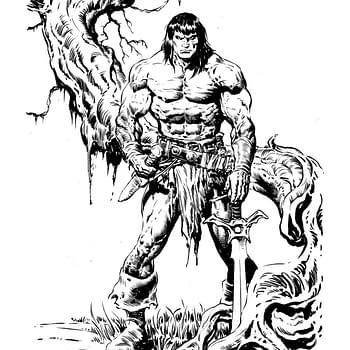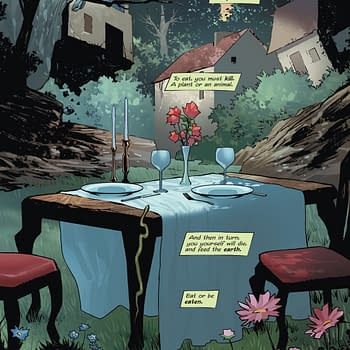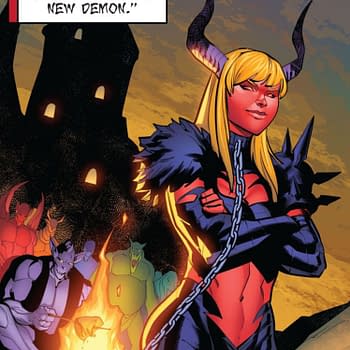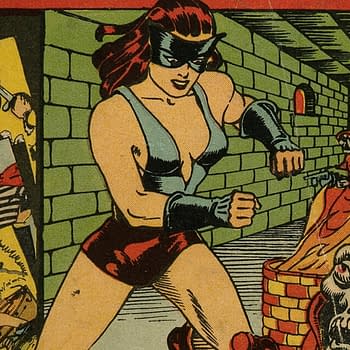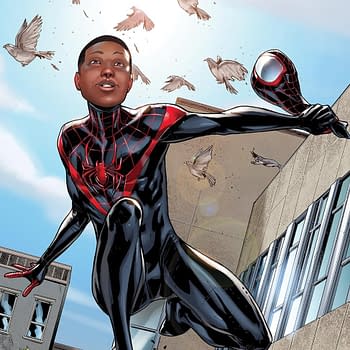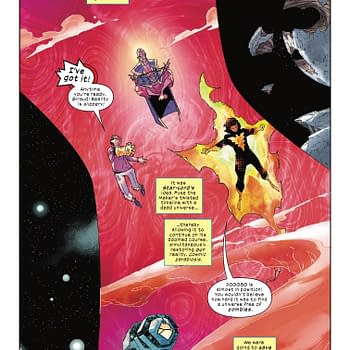Posted in: Comics, Recent Updates | Tagged: comic scripting, Comics, Diana Nock, entertainment, Josh Hechinger, Poorcraft, Spike Trotman
From Strip To Script – Poorcraft
By Josh Hechinger
Welcome to From Strip to Script, where I take a page of finished comic art and try to derive a script from it, to see what I can learn from the exercise.
Speaking of learning, it's not all superfights and genre exercises in this merry medium of comicky books. Sometimes, people remember that "comics are just words and pictures, and you can do anything with words and pictures" (quoth Harvey Pekar), and apply that theory to creating educational sequential narratives. Not quite the same as historical fiction fiction (although there can be some overlap, such as Crecy, educational sequential narratives most often tend to involve an omniscient narrator having a dialogue with either another character, or the reader.
Comics being comics, the two most famous of these are arguably comics about comics: Scott McCloud's Understanding Comics and Will Eisner's Comics and Sequential Art, but there's a whole world of practical, engaging educational sequential narratives for (quite literally) all ages out there.
My personal favorite at the moment, because I'm currently jobless and on my way to culinary school for a year and change, and as such have to stretch a dollar even beyond my usual frugal standards, is Diana Nock (art) and C. Spike Trotman's (writing) Poorcraft, which is an invaluable guide to, as it says, living well on less.
You can pick it up digitally here, or if the reason that you're looking into Poorcraft is to save for a tablet, pick up the print copy directly from Trotman's site.
PAGE SEVEN (FOUR Panels)
P1. PENNY addresses the reader over the shoulder as she picks vegetables from her planters, and puts them in a basket balanced on NICKEL'S head.
PENNY Net income. That's how much you make every month, after deductions like taxes, insurance, and retirement.
PENNY Gross income is how much you tell everyone you make.
PENNY Net income is how much you actually get.
P2. PENNY waters a plant in her yard while NICKEL taps his foot impatiently, still balancing the basket.
PENNY Savings and investments.
PENNY Investments are well-researched purchases intended to bestow future financial benefits.
PENNY Savings is just money you're socking away, usually in a back account.
PENNY (Or a mattress, if you're my grandpa.)
P3. PENNY shovels fertilizer onto furrowed rows. NICKEL loses patience and starts digging into the vegetables.
PENNY Non-discretionary expenses.
PENNY These are the fixed, inflexible bills you pay for essentials like rent, childcare, and debt repayment.
PENNY This also covers essential food and clothes.
P4. NICKEL coughs out some leaves and PENNY examines a flower, pleased.
PENNY And finally,
PENNY Discretionary expenses.
PENNY That's what you're spending voluntarily.
PENNY Discretionary spending is flexible, impulsive, and fun.
PENNY Fine dining, concert tickets, and video games.
So, What'd We Learn?
- It's educational, but it's also a comic (obvs.), so give your narrator some "business" to do while they're narrating, same as you would any other expositionary scene. Give the dog some business too, a little background sub plot, hey, why not?
- I also like the way the sub-topics are parsed out: here's what your overall intake of cash is called, here's the three places it can go within your budget. I think we often make the mistake of "good comics writing" being snappy dialogue or engaging plot twists, and those are great, but fundamentally, the best comics writing is about how to effectively (in this case, cleanly and engagingly) arrange information on the page; both the art, and the writing.
- Words per panels: 34, 32, 25, 23, grouped as 3-4-3-5 balloons, which has a pleasing falling-and-rising rhythm to it across the four-paneled page. Even with exposition, you want to control the flow of your information across the space you give yourself.
Philly-based comic writer Josh Hechinger [joshhechinger.tumblr.com] is a Cancer, and his blood type is A+. You can find him being a loquacious dope on Twitter, and read his comic collaborations on Comixology.











